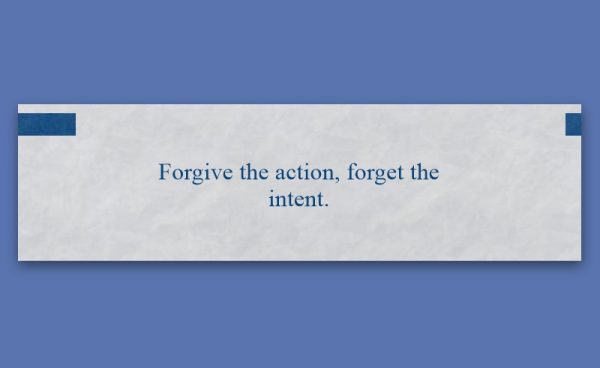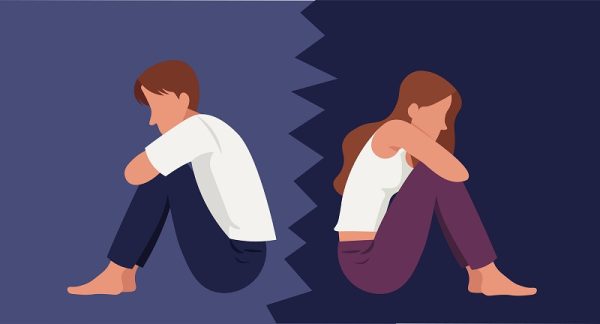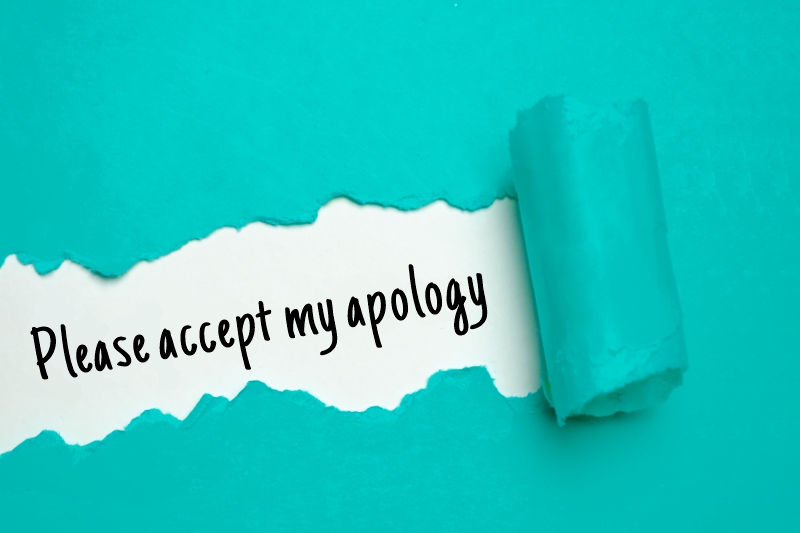Fortune Cookie Friday: Don’t Forget, Forgive
We all make mistakes in life, and sometimes those mistakes can harm others. When incidents like that happen, we apologize for what we have done.
It can be difficult to say we are sorry, but it is even more challenging to forgive someone.

There is an older version of today’s fortune: forgive and forget. It implies that people not only pardon the offender of the harm, but also erase it from their memory.
I disagree with this premise because we learn from our mistakes. It doesn’t matter if we committed the infraction or suffered from it. The incident, and how we react to it, can help us make better decisions in the future.
This newer version focuses on dealing with the consequences of that deed itself, but not the presumed motives behind it. I say presumed, because we may not know why someone did something. The offender may have the best of intentions or nefarious ones.
When wronged by someone, we should first apply the rule of Hanlon’s Razor. That may sound scary, but it simply means “Never attribute to malice that which is adequately explained by stupidity.” In other words, we should consider a more innocent explanation for someone’s actions than that they were trying to be mean.
Imagine someone cuts us off in traffic, and we have to step on the brakes to avoid an accident. We are in a different car than the other person and can’t be sure why they pulled in front of us the way they did. Sure, they could be a rude person who believed their agenda was more important than ours, and needed to be in front of us. They also could not have seen our car due to weather conditions, the sun, or they may have been distracted by a spider on their dashboard. Heck, they could have terrible diarrhea and need to get to a toilet immediately. Either way, it’s best to move on and get to our destination without causing more conflict.
Most people aren’t malicious in their everyday activities, so we should forgive them when they wrong us. We can also take precautions to prevent similar situations in the future. When driving, for example, we should stay alert for vehicles that pull into traffic, and make sure our headlights are on so we can be seen easily.
How do we handle people who do bad things for bad reasons? Well, and you may not like my answer, but we should forgive them, too. It isn’t easy, especially if they don’t apologize.

Forgiving a mean person doesn’t absolve them from their guilt and their responsibilities. This is why we have a justice system with laws and courts to mediate instances of malice or negligence.
It’s important to understand the intent in certain situations, such as with abuse or death. Even if the justice system is involved, we need to recognize signs of behavior in others that may harm us. Then we can avoid dangerous people or situations.
Most importantly, we need to monitor our response as a victim. We may feel pain and anger when wronged, but we should process those feelings wisely. Embracing negative emotions and becoming vengeful is destructive not only to us but also to everyone around us.
The reason we forgive people is not to let them off the hook; rather, it is to release ourselves from the burden of resentment. The world is chaotic enough without having to deal with the actions of others. When wronged, we can feel like we have lost control. Someone has knocked down our tower, and we are scrambling to pick up the blocks.
Forgiveness gives agency back to us. We take back power from the person who hurt us, as they no longer control our emotions or well-being. This helps us move on, make better decisions in the future, and find peace.




